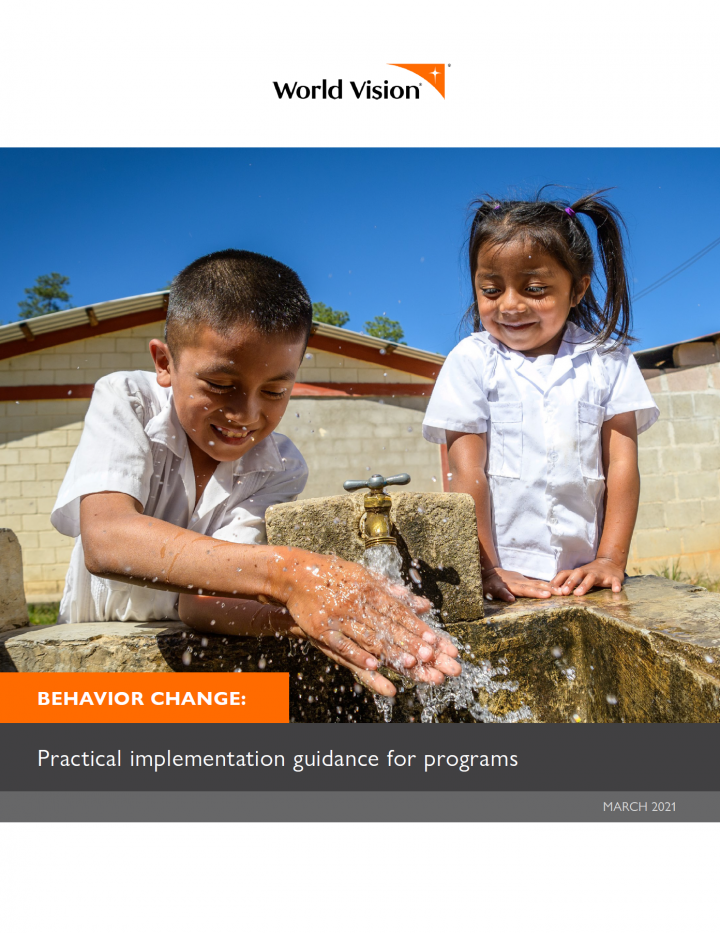Behavior Change. Practical Implementation Guidance for Programs.
Berhane, E., Diarra, S., Fosuah, C., Muheka, D., Mutisya, M., Nathan, M., Norman, R., Okumu, P. (2021)

Published in: 2021
Pages: 46
Publisher:
World Vision
Author:
Berhane, E., Diarra, S., Fosuah, C., Muheka, D., Mutisya, M., Nathan, M., Norman, R., Okumu, P.
Uploaded by:
SuSanA Admin
Partner profile:
common upload
660 Views
3 Downloads
Behavior-change principles and approaches are critical to reaching the desired impact of development work. Behavior change ensures the safe, effective, and sustainable use of services provided, helping change norms that can transform communities and enable achievement of health and well-being. Globally, the top 20 causes of disease all have a significant behavioral component. This holds true across sectors and significantly contributes to poverty in both high- and low-income settings. Infrastructure and trainings can enable people to practice healthy behaviors, but without the use of behavior-change approaches, long- term well-being is usually not achieved.
Behavior change has great potential to address issues of poverty and inequality. Though seemingly simple, behavior is often driven by subconscious motivations, making it difficult to change. World Vision has been implementing behavior change for many years. However, lower than anticipated results in sanitation and hygiene as well as water quality from our 14-country water, sanitation, and hygiene (WASH) evaluation with the Water Institute at the University of North Carolina (UNC) led World Vision to place a greater emphasis on developing effective behavior- change approaches and investing in them to see greater impact.
Bibliographic information
Berhane, E., Diarra, S., Fosuah, C., Muheka, D., Mutisya, M., Nathan, M., Norman, R., Okumu, P. (2021). Behavior Change. Practical Implementation Guidance for Programs.. World Vision
Filter tags
English














